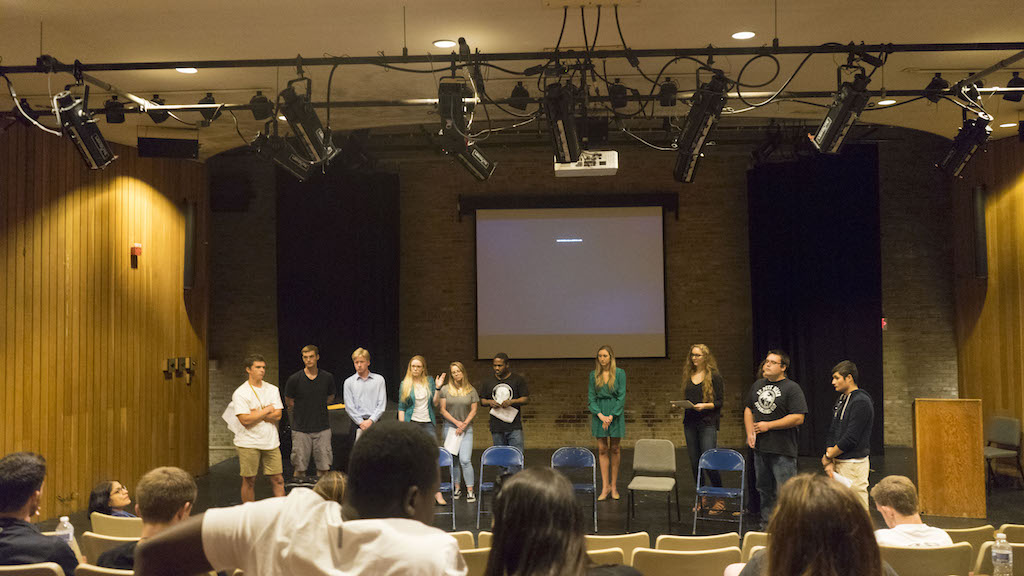Debate argues pros and cons
AACC’s Economics Club hosts a debate on the pros and cons of a wall between the U.S and Mexico.
May 1, 2017
AACC students who watched a campus debate in April over the economic pros and cons of a wall between the U.S. and Mexico sided with the debaters who opposed it.
Sixty percent of audience members said they agreed with a student team that argued immigrants are good for the U.S. economy — so a wall would be bad for it.
The AACC Economics Club hosted the debate.
The anti-wall team explained that most immigrants come into the country legally with visas, but for many, their visas expire while they are here, so it is illegal for them to stay in the country.
The debaters said illegal immigrants pay “about $12 billion a year in taxes.”
And 52 percent of the agricultural work force includes illegal immigrants, the team said, so President Donald Trump’s plan to deport illegal immigrants could create a large deficit in agricultural labor.
But the pro-wall team outlined three reasons why the U.S. should build a barrier between the two countries as Trump has proposed.
The labor-market impact deals with how a ban on Mexican immigrants will ensure that citizens will fill American jobs and that wages will remain competitive, the team argued.
The fiscal impact argument says the wall will keep immigrants who do not pay taxes out of the U.S. and stop them from receiving government benefits.
The consumption and gross domestic product impact theory says the wall will increase government spending and create new jobs, thus raising GDP.
Economics professor Uzma Qureshi focused the debate on the nations’s economy.
“I can’t say … Team A won or Team B won because that’s not the point of it,” Qureshi said. Qureshi appreciated the learning value of the debate over a winning-losing team scenario.
One audience member, however, said the debaters on both sides “got off topic from the economic point.”
Sophomore government and politics major Riley Williams, a member of the “no” team, agreed, saying the debate went well, but it was hard to keep on topic.
“Both sides presented some solid, good arguments,” Williams said of the debate in HUM 112. “There’s a lot of parameters to this debate, it’s not just a single black and white [issue].”
A point Williams wishes he could have made in the debate deals with the environmental effect from the wall, he said.
Clifton Rife, a fourth-year dual major in business administration and computer programming, said, “A lot of what they are bringing up spirals down into feelings, criminal backgrounds and political amenities.”












